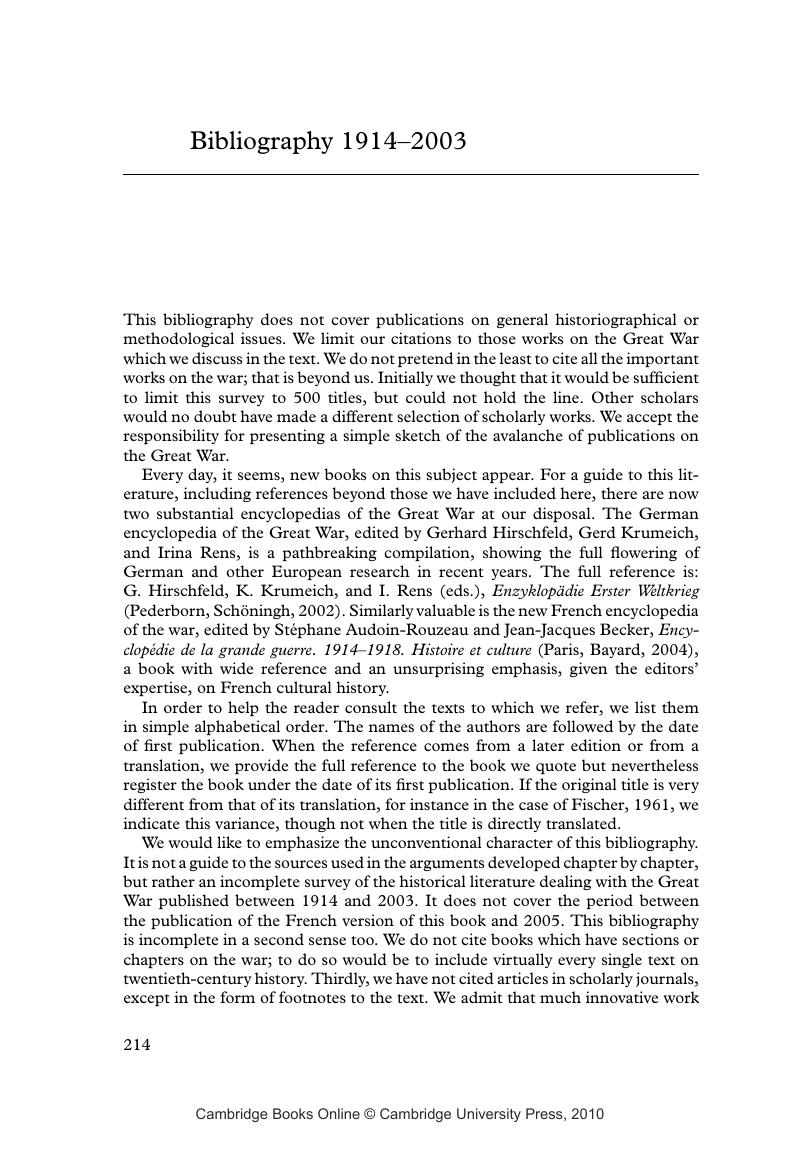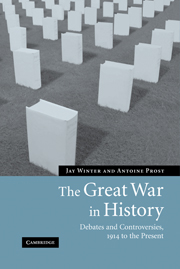Book contents
- Frontmatter
- Contents
- Preface to the English edition
- Introduction
- 1 Three historiographical configurations
- 2 Politicians and diplomats: why war and for what aims?
- 3 Generals and ministers: who commanded and how?
- 4 Soldiers: how did they wage war?
- 5 Businessmen, industrialists, and bankers: how was the economic war waged?
- 6 Workers: did war prevent or provoke revolution?
- 7 Civilians: how did they make war and survive it?
- 8 Agents of memory: how did people live between remembrance and forgetting?
- 9 The Great War in history
- Bibliography
- Index
- Studies in the Social and Cultural History of Modern Warfare
- References
Bibliography
Published online by Cambridge University Press: 05 June 2012
- Frontmatter
- Contents
- Preface to the English edition
- Introduction
- 1 Three historiographical configurations
- 2 Politicians and diplomats: why war and for what aims?
- 3 Generals and ministers: who commanded and how?
- 4 Soldiers: how did they wage war?
- 5 Businessmen, industrialists, and bankers: how was the economic war waged?
- 6 Workers: did war prevent or provoke revolution?
- 7 Civilians: how did they make war and survive it?
- 8 Agents of memory: how did people live between remembrance and forgetting?
- 9 The Great War in history
- Bibliography
- Index
- Studies in the Social and Cultural History of Modern Warfare
- References
Summary

- Type
- Chapter
- Information
- The Great War in HistoryDebates and Controversies, 1914 to the Present, pp. 214 - 240Publisher: Cambridge University PressPrint publication year: 2005



